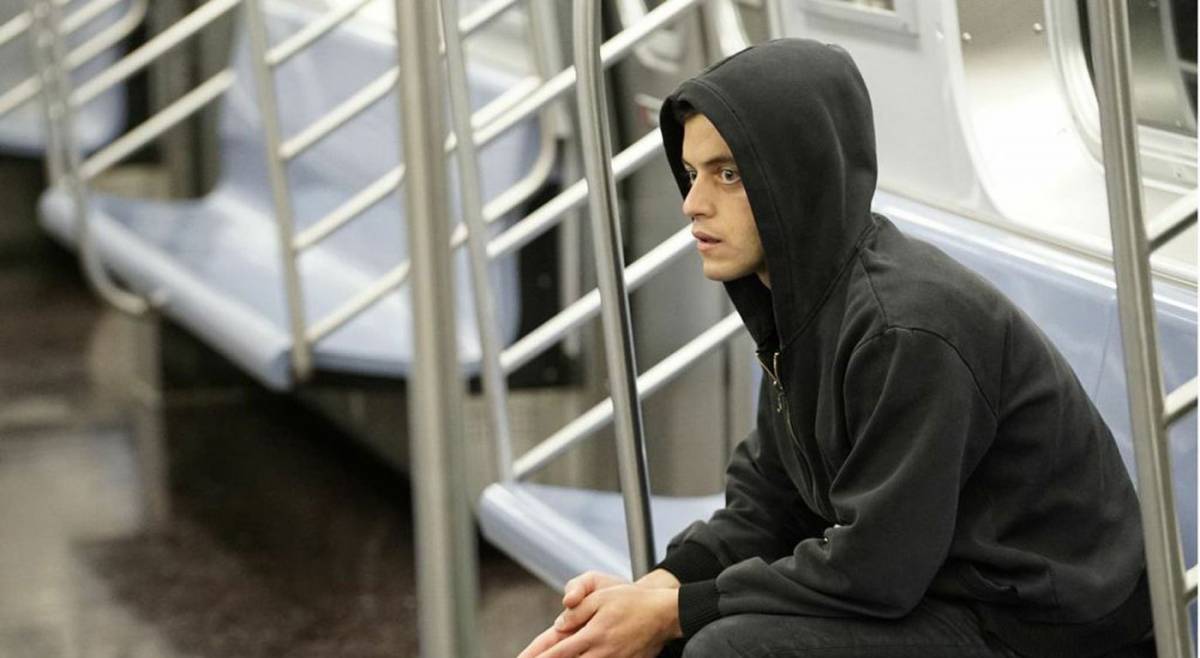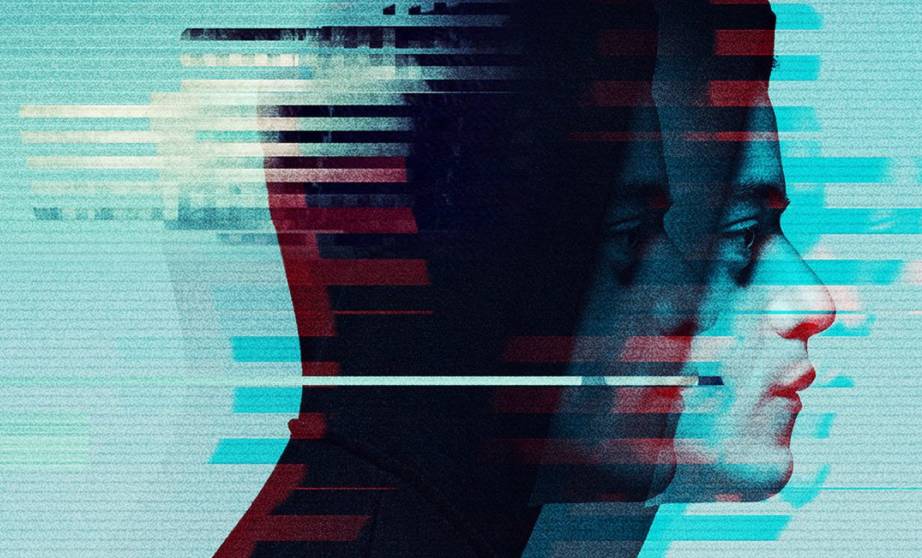Critics and viewers alike were caught by surprise when Sam Esmail’s Mr. Robot debuted in 2015. Nobody knew what to expect from this under the radar creator, or what the show was to become. Now, with three seasons and a fourth commissioned for later this year, Mr. Robot proved to be a hit.
This psychological drama and techno thriller has received an overwhelming positive reaction from its viewers, made clear from the numerous awards it’s tucked under its belt (including ‘Best Television Series – Drama’ at the 73rd Golden Globes). With a captivating narrative, obscure cinematography, creative editing, powerful performances and an excellent soundtrack, it’s clear to see why the show has gained such traction. So, with Season 3 having been released on Blu-ray and DVD recently, for those of you who haven’t seen the appeal so far, haven’t gotten around to it or simply aren’t interested; with no spoilers, this is why you should be watching Mr. Robot right now.
The plot to this show is so incredibly consuming that it’s hard to turn away from. Entering the dangerous world of internet hackers and the powerful effect they have on society, this story is a rollercoaster of intensity with twists and turns throughout as it delves into the personal life of protagonist Elliot Alderson (Rami Malek), an introverted computer hacker suffering from social anxiety disorder and depression, who uses his skills as a means of connecting with people and as a way of dealing justice to criminals as an internet vigilante. Mr. Robot tells the tale of Elliot’s recruitment into ‘fsociety’, a group of hacktivists led by the mysterious insurrectionary anarchist, ‘Mr. Robot’ (Christian Slater).

slashfilm.com
What takes place next spirals Elliot into a series of events which drastically change his life, which in essence begin to affect the people closest to him who want nothing more than to simply connect with him. There’s a strong psychological presence to this show which comes from Elliot’s internal monologues in which he talks to himself and the viewer who he addresses as ‘friend’. The creative decision to have him address the audience of course, doesn’t feel out of place considering Elliot’s mental state and actually, benefits the narrative nicely. Just read his opening monologue in episode one:
“Hello, friend. “Hello, friend?” That’s lame. Maybe I should give you a name. But that’s a slippery slope. You’re only in my head. We have to remember that. Shit. It’s actually happened. I’m talking to an imaginary person. What I’m about to tell you is top secret. A conspiracy bigger than all of us. There’s a powerful group of people out there that are secretly running the world. I’m talking about the guys no one knows about. The guys that are invisible. The top one percent of the top one percent. The guys that play God without permission. And now I think they’re following me.”
Powerful, right? The genius of having him address the audience makes you feel present in the room when he finds himself in an unhinged situation. His experiences feel like our experiences and it’s thrilling. Not only does this help develop Elliot and make him worth investing in, but in many ways help us relate with his character. Cynical, anti-social, awkward and a genius at his craft, he’s different than what you would usually come to expect of a protagonist and much more interesting because of it. When Mr. Robot comes into the mix and adds tension into Elliot’s life, his characteristics elevate drastically which begin to create some pretty heavy scenes. This brings me to the performances in the show which put quite simply, are excellent. An impressive script has given the cast enough freedom to express their respective character’s emotional range, Malek and Slater do this exceptionally well showcasing a brilliant chemistry between the two that shows from scene to scene. Portia Doubleday (who plays Angela Moss, Elliot’s childhood friend) deserves some praise for her rendition of Tears For Fears’ Everybody Wants To Rule the World during Season 2, which heavily captures the state of the show at that moment in time.
Esmail’s passion for film seeps into Mr. Robot making reference to numerous films (which would ruin the surprise if I were to mention them), all of which never feel out of place within the plot and containing an independent relevance to them that pays homage rather than fraud, which in effect is a delight to see on screen. This is exactly how references should be done. Mr. Robot is a perfect example of how you properly use pre-existing material in your work, by giving it purpose and individuality.
Supported by an incredible soundtrack that captures the tone and essence of the show in every episode, Mr. Robot creates energetic scenes through its various ranges of music. Each scene is emphasised by brilliant choices of song during the most sombre and crucial moments of the story which only amplify the power of each narrative plot point. Some pieces often create some powerful juxtaposition too, most notably during a scene with Tyrell Wellick (Martin Wallström) in season one which is gripping. The use of music is perhaps most effective during the intro of each episode, where instead of the typical opening sequence incorporated with theme music, the episode continues as normal whilst the text “Mr. Robot Created by Sam Esmail” overlays after a specific beat of a song, usually after an important event or piece of dialogue.
Now if there was one thing you might have heard about Mr. Robot, it would likely be Tod Campbell’s experimental and daring cinematography that thrives on avoiding conventional framing. Breaking the rule of thirds (a rule in filmmaking that the point of interest should be 1/3 or 2/3 of the frame), by all technical standards Mr. Robot’s framing should be considered bad, but it isn’t and it works beautifully. With little focus on the characters and vast amounts of empty space, something feels very uneasy about the framing in this unorthodox way of filming but that, however, is what makes it so powerful. It reflects the narrative of the show. With constant talk of a broken society full of evil, the shots emphasise this unusual, almost lingering tension that fulfils the world Elliot spectates.
https://www.youtube.com/watch?v=_y07JUUQ9oA
This framing also shows just how absentminded the characters can be, through the course of Mr. Robot it’s easy to see how they lack the ability to focus on the present even during conversation, and this conveys heavily through Campbell’s work. What should be off-putting is incredibly aesthetic and stunning to look at, regardless of breaking filmmaking conventions. Each shot feels carefully planned with heavy attention to detail and the gloomy colour scale has a captivating presence that sets the tone for the show, making you never want to turn away from such unique and intriguing cinematography.
It’s impossible to list every reason you should be watching Mr. Robot. It would take far too long and would spoil the surprise of witnessing this brilliant show for yourself. What I’ve listed only scratches the surface of the show, but I hope it’s intrigued you enough to investigate for yourself, because what Mr. Robot offers, which many television programmes fail to provide these days, is a truly compelling television experience.
Some of the coverage you find on Cultured Vultures contains affiliate links, which provide us with small commissions based on purchases made from visiting our site. We cover gaming news, movie reviews, wrestling and much more.




